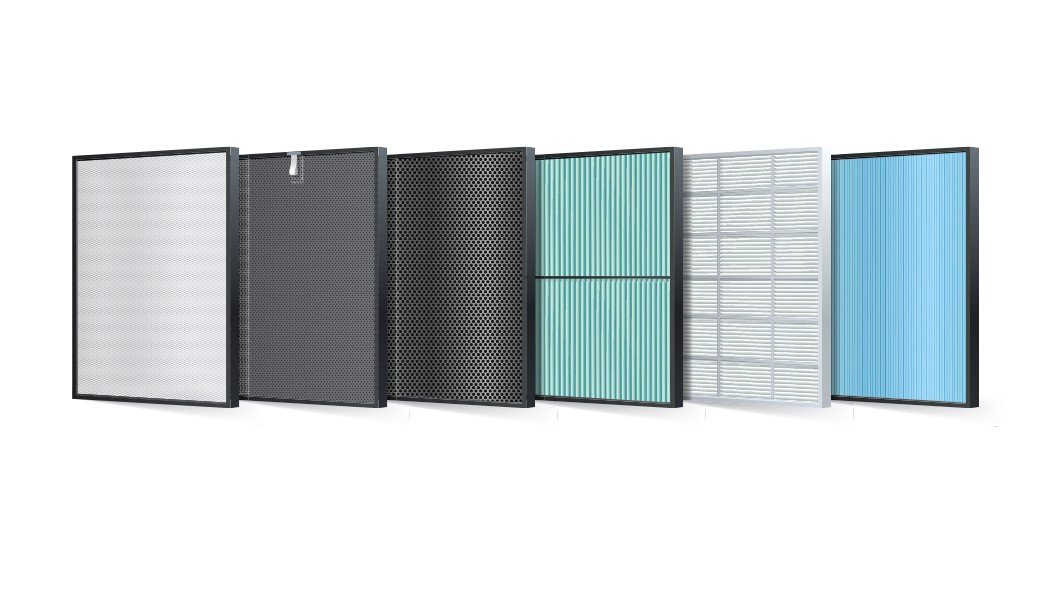Choosing the right air filters for your home is essential, especially if you or your loved ones suffer from asthma. High-quality air filters can significantly reduce airborne allergens and pollutants, helping to create a safer environment. When shopping for air filters for asthma, look for those that meet specific standards, such as HEPA filters, which can trap 99.97% of particles that are 0.3 microns or larger.
One of the top choices in air filters for asthma is the HEPA filter. These filters are designed to capture dust, pollen, pet dander, and mold spores, providing significant relief from common asthma triggers. Regular replacement of these filters is crucial for maintaining their effectiveness. Check your filters about every three months to ensure they are clean and functioning correctly.
Another excellent option is activated carbon filters, which not only trap large particles but also absorb odors and harmful chemicals. This is particularly beneficial for asthmatics who may be sensitive to strong smells or pollutants from household products. When combined with a HEPA filter, activated carbon filters can offer a comprehensive solution for improving indoor air quality.
For those looking for a convenient solution, air purifiers featuring multiple filtration systems can be a game-changer. Many modern air purifiers come with both HEPA and activated carbon filters, plus additional features like UV light or ionizers. These units can efficiently clean the air in your home, providing a healthier space for everyone, particularly for those who suffer from asthma and allergies.
How Air Filters Help Asthma
Asthma is a condition that affects millions of people worldwide, making it essential to find ways to manage and reduce symptoms. One effective solution many individuals turn to is the use of air filters for asthma. These devices help clean the air indoors, removing common allergens and irritants that can trigger asthma attacks.
Air filters for asthma work by trapping particles like dust, pollen, pet dander, and mold spores. By reducing the presence of these allergens in your home, air filters can create a healthier living environment. This is particularly important for asthma sufferers, as less exposure to irritants means a lower likelihood of experiencing symptoms such as wheezing, coughing, and shortness of breath.
In addition to capturing allergens, many air filters are equipped with HEPA (High-Efficiency Particulate Air) technology. HEPA filters are designed to catch even the tiniest particles, ensuring that the air you breathe is as clean as possible. This level of filtration can make a significant difference for those with asthma, allowing them to enjoy better air quality and potentially reduce their reliance on medications.
Moreover, some air filters for asthma come with additional features like activated carbon filters, which can help neutralize odors and volatile organic compounds (VOCs). This added layer of protection can further improve indoor air quality, making it easier for asthma sufferers to breathe comfortably in their own homes. By investing in a good air filter, individuals with asthma can take proactive steps toward managing their condition.
Choosing the Right Filter Type
When it comes to managing asthma, air quality plays a crucial role in your well-being. One effective way to improve indoor air quality is by using air filters for asthma. However, not all air filters are created equal, so choosing the right type is essential for optimal results.
The first thing to consider is the filter's efficiency. High-Efficiency Particulate Air (HEPA) filters are among the best options for asthma sufferers, as they capture 99.97% of particles that are 0.3 microns or larger. This includes common allergens like dust mites, pollen, and pet dander, significantly reducing irritants in your living environment. Look for air filters that specifically mention HEPA certification to ensure you’re getting a quality product.
Another factor to consider is the filter's MERV rating, which stands for Minimum Efficiency Reporting Value. A higher MERV rating means better filtration. For asthma relief, filters with a MERV rating of 8 to 12 are generally recommended. They strike the perfect balance between capturing fine particles and maintaining good air flow, which is crucial for keeping your HVAC system running efficiently.
Lastly, consider the maintenance and longevity of the air filter. Some filters need to be replaced every 30 days, while others may last up to six months. Opt for air filters for asthma that are easy to replace or clean, based on your lifestyle and preferences. Regular maintenance will ensure your filter continues to perform effectively, providing you with cleaner air and better asthma management.
Tips for Better Indoor Air Quality
Maintaining good indoor air quality is essential, especially for individuals with asthma. To ensure you’re breathing clean air, start by regularly changing your air filters. Air filters for asthma are specifically designed to trap allergens and pollutants, such as dust mites, pollen, and pet dander. Make it a habit to check your filters every month and replace them every three months for optimal performance.
Beyond using effective air filters, consider incorporating air purifiers into your space. These devices can remove even finer particles from the air that your standard HVAC filters might miss. They work hand-in-hand with air filters for asthma to create a cleaner environment, helping to reduce the frequency and severity of asthma attacks.
Another vital tip is to keep your home well-ventilated. Open windows when weather permits to let fresh air circulate throughout your living spaces. However, be cautious of outdoor pollution levels, especially if you live in an urban area. On days with high pollen counts or poor air quality, it’s best to rely on your air filters for asthma and keep windows closed.
Lastly, you can boost indoor air quality by reducing humidity levels. High humidity can lead to mold growth, which is detrimental to asthma sufferers. Use dehumidifiers in damp areas like basements and bathrooms. Keeping humidity levels between 30% and 50% can significantly improve the air quality in your home, creating a healthier atmosphere for you and your family.
